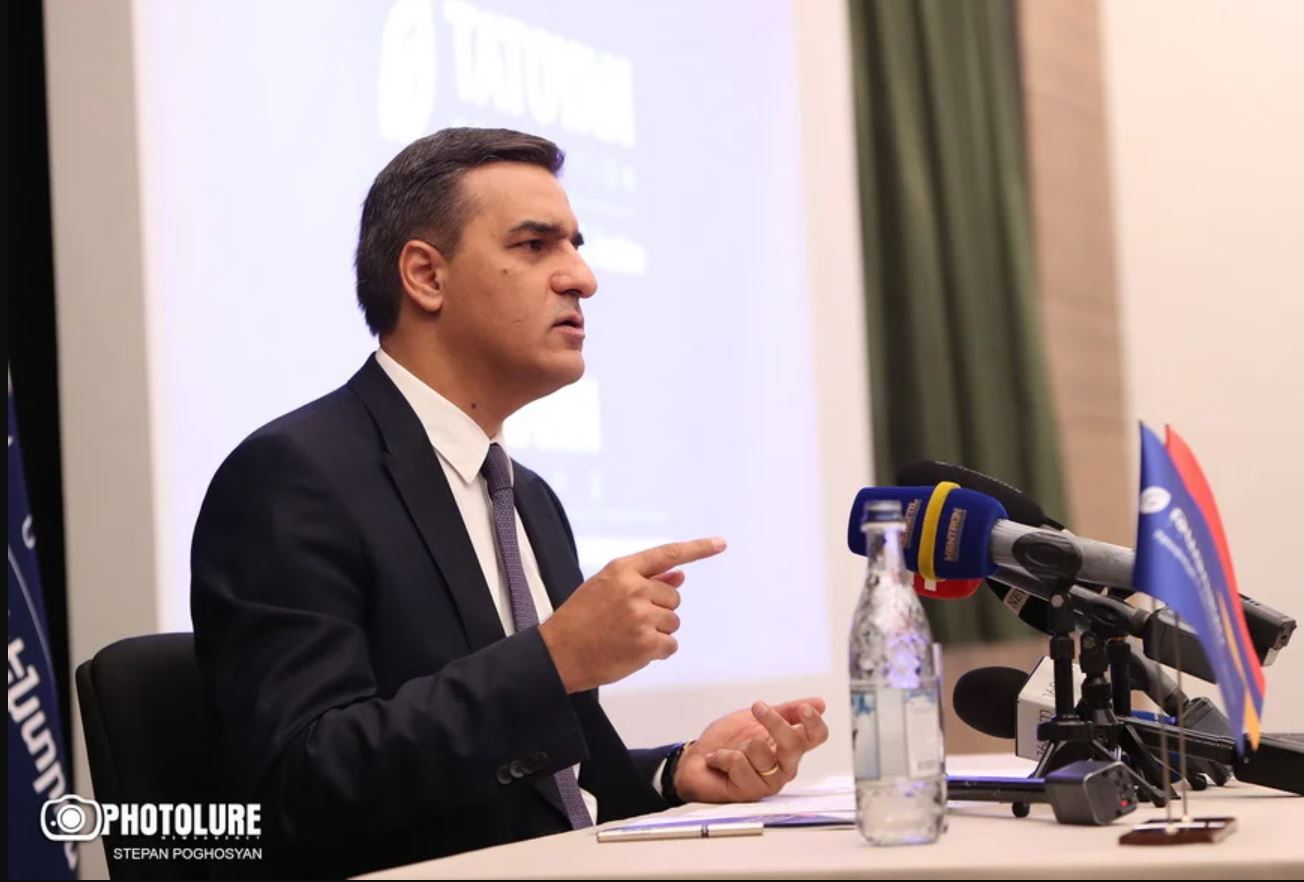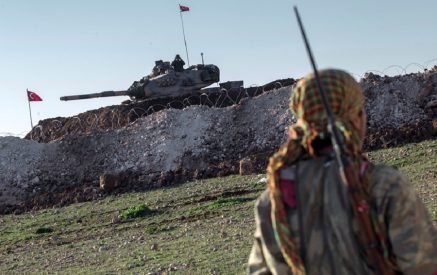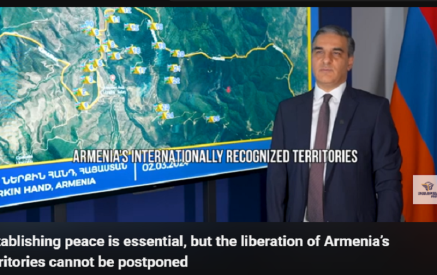Arman Tatoyan, Director of the Center for Law and Justice Foundation “Tatoyan,” and former Ombudsman, said that Azerbaijan talks about the so-called “Western Azerbaijan” with false theses and tries to justify it. In the first phase, they are talking about the “return” of 300,000 Azerbaijanis. “At the end, there were big hearings, where they already talked about 100 thousand.
They have already decided on settlements appointed coordinators; they only talk about the settlements of Armenia with Azerbaijani place names. They are talking about the supposed security of these people; they are talking about the international mission that should be provided and should be such a country that enjoys the trust of that community.
Do you understand what country we are talking about? They have now targeted our churches: Haghartsin, Noravank, and Geghardavank. They claim, even put forward a condition of solidarity, that they should be returned to the real owners, who are, for example, the Albanians of the Caucasus, the Udis. They targeted the Armenian Apostolic Church, presenting it as the fifth column.” Arman Tatoyan answered the question: now they are talking about enclaves, what will Artsvashen give us, and what will we lose by giving the so-called enclaves in the territory of Armenia? “First of all, what does enclave mean?
That mechanical political term should not only be removed from our speech but should not remind us of any idea about it based on our steps. When it comes to borders, there are international principles; we need to establish the focus on security and human rights, human protection. The idea of those maps, this number, that number, what does this mean? We are dealing with the country’s security; how can you discuss map numbers in the conditions of this hostility of Azerbaijan?
Read also
It is necessary to have as a basis: as a result of these steps, will the security of our people and our compatriots be disrupted or not? Will everyday life be disrupted or not? So what will happen? Why did we fix the example of Artsakh? That is a typical Azerbaijani policy, which they also want to apply naturally to Armenia. Now imagine something like this happening in Tavush; what about the condition of the roads? Everyone will be isolated again. There is also a great danger regarding the Armenian-Georgian border.
Here, it is essential to refer to the historical facts. Look at what Azerbaijan is doing; they base any of their demands on non-existent false facts, going back to the 1800s that the state did not even exist then. Having put all the points under us, they are all historical Armenian villages. Artsvashen, for example, if you look at today’s map, is a small island in the territory of Azerbaijan. Still, in reality, it was part of Soviet Armenia during the Soviet Union, and later, it was cut into pieces and became an insular place.
They talk about Tigranashen; they ask the government a question and say: we will find other ways. Should we give in to Azerbaijan’s whims, not present our arguments, torture our people, and build alternative roads again, as we did in Syunik? Azerbaijan came and took control of the road; we presented evidence that there were reasons to remove them from there immediately.
What was Armenia doing? It was building new roads through mountains and valleys; even now, a large part of these roads cannot be used by ordinary vehicles. In the case of Tigranashen, look at how the connection with other regions is endangered; people also live there, don’t they? They carry out life activities; what will happen to those people?
We have no right to move with such mechanical approaches; it is only an approach beneficial to Azerbaijan. There are international principles, the OSCE rules, which must take into account people’s everyday lives, water resources, and forest maps. Even if people use a water source for their daily life, that should be taken into account.
As for the size, the area of Artsvashen is more significant than the others, but it cannot be more critical for us; it is an area inside Azerbaijan now. I’m sorry, Azerbaijan can say: let’s give a couple of Artsvash to other parts of Azerbaijan. Instead, we will say, well, the territory is extensive; should we take these villages? What will happen to people’s safety? How will we ensure there?”
Hripsime JEBEJYAN


























































